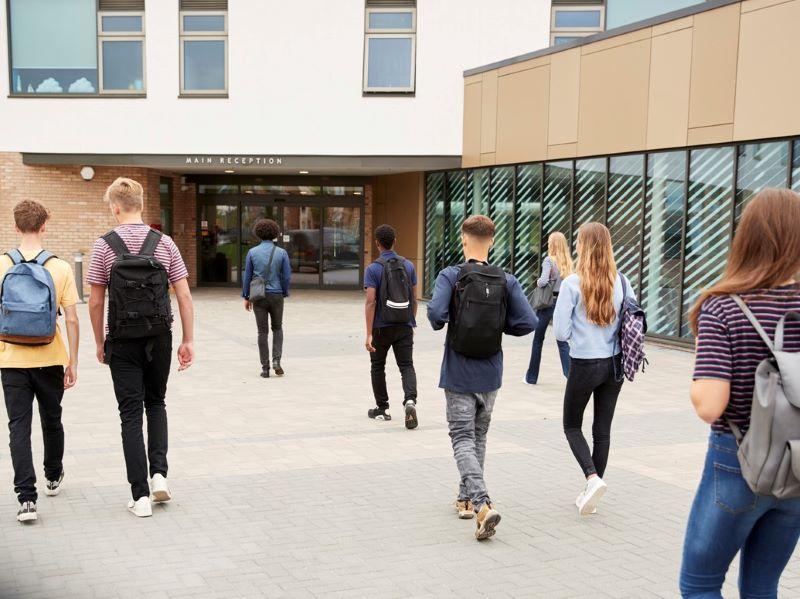
Co-branding the student journey from further to higher education

Entering higher education can be a time of great risk and anxiety for students. Interventions that enable navigation of university life – such as appropriate course selection, advice on funding and orientation – can foster greater student engagement and support a smoother transition to university. Pre-entry support and guidance is pivotal to student success and improving university attrition rates.
Evidence demonstrates that programmes that facilitate an early link with HE, arrange campus visits and provide support with applications can improve progression to university. As such, it’s crucial to continue building links between universities and further education (FE) colleges. Feeling rapport is critical to student success and can promote academic motivation and greater engagement.
- How academic coaching influences student performance and institutional outcomes
- Campus webinar: University admissions: a flawed process?
- Improving admissions: how to evaluate the whole student
This orientation of potential students must be a shared effort between FE colleges and universities; working closely together can enable personal connections with FE students to be built over time, which can help reduce anxiety prior to entering HE. Exposing young people to university visits, including hands-on practical elements, can help students determine if they are making the correct decision on their chosen career – and could promote other options to be considered instead.
It goes without saying that such opportunities should be inclusive, and it is imperative that universities and FE colleges continue to seek innovative ways of targeting and inspiring students to reach career goals. One useful type of collaboration between universities and FE colleges comes in the form of a “co-branding programme”, which can formally associate a college with a university.
A co-branding programme would typically involve the university delivering a range of activities for college students with the aim of improving their understanding of higher education, the application process and the university courses that could be available to them, ultimately aiming to support their progression into university study. Equally, the FE college should commit to working with the university to provide agreed visits from and to the university and to engage with relevant academic subjects and events.
Furthermore, as part of a co-branding exercise, encouraging FE students to view their college course as a pathway from a Level 3 qualification to a degree can map progression opportunities from FE into HE, which can help create, sustain and increase higher level skills in the college’s local area.
Examples of sessions that might form part of a co-branding programme, which should be peppered throughout the college students’ courses, are:
- An introduction from the co-branding staff outlining the support on offer
- A personal statement workshop
- Priority visits to the university, offering the opportunity to speak to academics and view the facilities
- Interview preparation advice
- Mock interviews offered as part of the programme followed by a guaranteed interview at university
- Finance talks to bust the myths around student loans and inform students of funding available to support their university studies
- Drop-in sessions to offer support following interview outcomes and support transition
We piloted our co-branding programme at Canterbury Christ Church University in 2020 and, while our focus has been on health and social care students, the programme can be used as a recruitment initiative across many other courses within a university. Thus far, it has been a huge success, with an increase in applications of almost 120 per cent in the first year. Our co-branding offering continues to gather momentum and has since been rolled out to several other colleges, with even more in the pipeline.
In terms of benefits for colleges, such a partnership with a university can be marketed on the college website, which can potentially increase applications to the college if students know there is an established progression route. Meanwhile, the college students have reported that it has enabled them to make more informed decisions about their futures.
Evidence supports the belief that linking to universities during a college course can help in forming positive learner identities as HE students and can support students to progress to HE. Our co-branding initiative has increased the number of applications to health courses at the university compared with previous years and has been employed to support student recruitment onto other courses in the university.
In addition to the above, we have identified the following benefits that a co-branding programme can bring to students, the FE college and the university:
- Supports the college students by giving them assistance in accessing (and eventually completing) a degree
- Creates a special relationship with and affinity for the university before and and after application
- Allows for experience of university life and expectations through open events and taster days
- Ensures recruitment of qualified transfer students prepared for studying in HE
- Supports widening participation agendas and growth targets instituted through initiatives such as the National Collaborative Outreach Programme
- Allows collaborative work between the university and the college, including sharing expertise to develop and deliver the programmes
- Ensures resources are used effectively across both institutions, with students getting full credit for prior learning
Melanie Pitcher is health and care engagement lead and a lecturer in the Faculty of Medicine, Health and Social Care at Canterbury Christ Church University, UK.
If you would like advice and insight from academics and university staff delivered direct to your inbox each week, sign up for the Campus newsletter.


